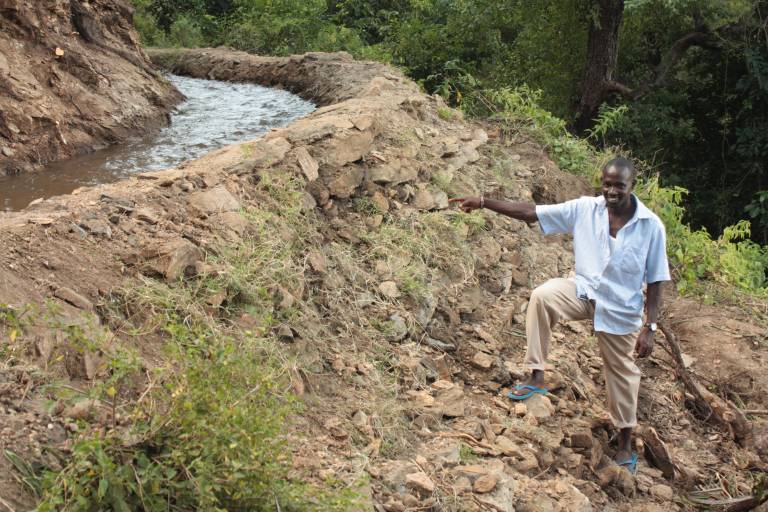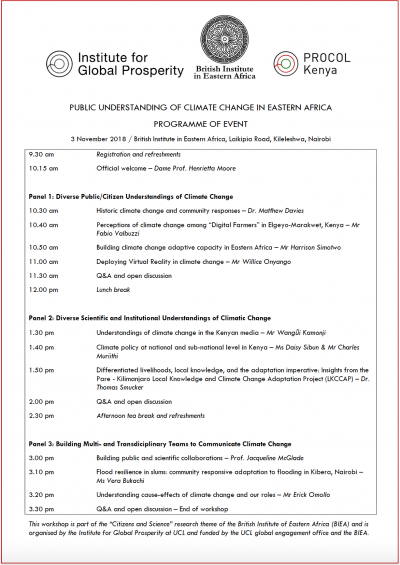Public Understandings of Climate Change in Eastern Africa
03 November 2018, 10:00 am–5:00 pm

The Institute for Global Prosperity and British Institute of Eastern Africa are organising a workshop to discuss how climate science research can be best communicated to different audiences in Eastern Africa
Event Information
Open to
- All
Availability
- Yes
Organiser
-
Dr Matthew Davies
Location
-
British Institute in Eastern AfricaLaikipia RoadKileleshwa, NairobiNA

This workshop explores common misconceptions between scientific, institutional and public understandings of climate change and examines how more effective methods of communication and behaviour change may be developed. It focuses on sharing knowledge and approaches across the sciences, and on breaking down differences of understanding.
The workshop focus on three panel discussions with leading UCL, UK and East African figures. Panellists will present short "think pieces" designed to stimulate debate with the audience.
Attendance is open to all on a first-come-first-served basis. To register your participation at this event please click here. We will also stream the event online.
Why this workshop?
Africa is generally recognised as the continent most vulnerable to the impacts of climate change. Understanding and responding to these vulnerabilities requires knowledge and cooperation across sectors, disciplines, institutions and diverse audiences. Effective climate research must engage with policy makers, businesses and different public groups.
However, genuinely transdisciplinary perspectives and research teams remain rare, especially in sub-Saharan Africa. Regional understandings of the nature and impact of climate change remain limited with local academics and policymakers ofen lacking the research data and tools to inform effective responses. Current drives towards change are often led by disconnected, project-level approaches with disconnected funding agendas. In addition, environmental science in sub-Saharan Africa has at times been associated with top-down and repressive policies and practices which marginalise African citizens.
Climate change knowledge, capacity and responses remain patchy.
Responses to climate change must avoid longstanding associations between science and colonial/post-colonial power dynamics. There is a need for fresh approaches that involve the co-production of knowledge and action across the sciences, with stakeholders from government, civil society and business. Communicating the nature of research and developing common understandings of climate change are essential to this.
This event will be run by Professor Jacqueline McGlade, Dr Matthew Davies, Dr Freda M'Mborgori, and Professor Henrietta Moore. It is being organised by the Institute for Global Prosperity and the British Institute in Eastern Africa, with funds from the UCL Global Engagement Office.
 Close
Close

